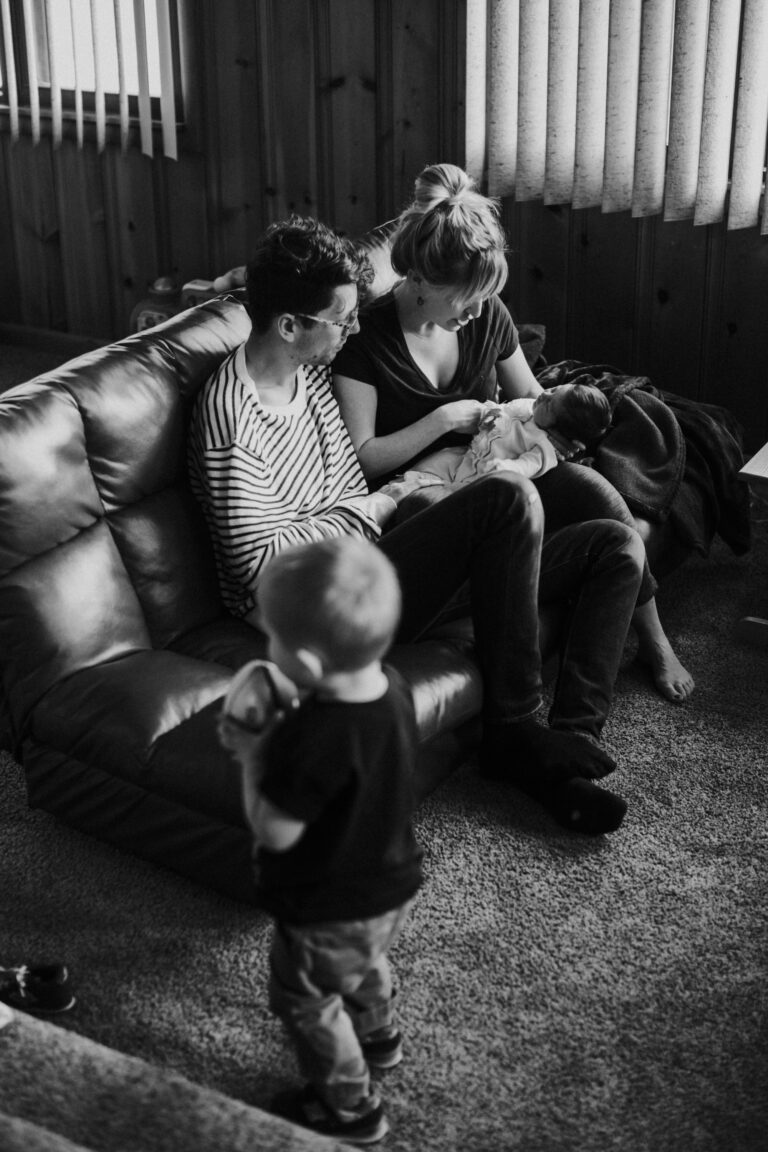Anticipating a surgical procedure or childbirth for your child—or even for yourself—instantly raises a cascade of questions and mild apprehensions. How will the body react? Is there any hidden risk lurking in the medical files? Might something be missed because of a busy routine, a misunderstood instruction, or a miscommunication? The Pre anesthesia consultation stands as a dedicated moment to address these uncertainties, working as a bridge between anxiety and assurance. Through a careful balance of medical vigilance, customised assessment, and practical guidance, it creates an environment where your concerns truly matter. From clarifying fasting rules to ensuring every allergy is noted, from reviewing prior surgery reactions to meticulously planning for any medical peculiarity—each step is tuned to promote your child’s safety and comfort. Let’s explore, together, the key moments, topics, and precautions making all the difference during the pre-anesthesia consultation, tailored for your family’s peace of mind.
What is a pre anesthesia consultation and why is it so important for families?
Imagine a dedicated meeting where doctors take the time to look through every detail of your child’s medical story—current health, long-ago allergies, even that one odd rash after a medication years back. That’s the essence of a pre anesthesia consultation: an advance medical evaluation before any planned surgery or a delivery—sometimes even if anesthesia isn’t confirmed yet. This check isn’t just for ticking boxes; it’s a dynamic review assessing everything from medication records to family surgical tales, allowing the medical team to foresee and manage potential challenges. Special focus is given to identifying risks: allergies (even those to foods or environmental factors), chronic illnesses, old surgical scars, or rare bleeding tendencies. Modern standards require these consultations particularly for expecting mothers (typically scheduled in the 8th month) and children facing major operations or those living with persistent health conditions. Why so early? Because pregnancy and childhood are uniquely dynamic—changes happen fast, and being prepared ahead ensures the team isn’t caught off guard, even in case of an unexpected event like premature labour or complicated delivery. When the pre anesthesia consultation is performed ahead of time, it’s like setting safety nets everywhere, ensuring smooth pathways no matter what hurdle appears.
What happens during a pre anesthesia consultation?
You might be picturing a rushed appointment, thick with paperwork. Instead, think of a session where time is invested in listening and double-checking. The pre anesthesia consultation typically includes:
- A detailed interview about medical, surgical, and even family history (think asthma in grandparents, or mum’s previous reaction to anesthesia)
- Careful allergy review, not just to medicines but foods, latex, and even pollen or dust
- A physical examination—checking airway (mouth and throat), blood pressure, weight, height, presence of swelling, and, for mothers, evaluating any pregnancy-specific concerns
- Analysis of previous anesthesia events, including adverse effects like unexpected drowsiness or agitation
- Reviewing all regular medications, over-the-counter supplements, and especially any herbal or Ayush (traditional) products
- Attention to details like recent tattoos close to the lower back (where spinal or epidural injections might be placed)
If there are complex medical conditions (for example, blood clotting concerns, a history of difficult spinal surgery, or chronic infections), the staff will anticipate how these might impact the method of anesthesia used. In some cases, extra blood tests or diagnostic checks (such as EKG, chest X-ray, or even a platelet count) might be arranged to eliminate uncertainties.
Tailoring anesthesia for unique needs and scenarios
No two patients are exactly alike—age, existing health issues, past medical interventions, and even subtle anatomical changes, all play a part in personalising the anesthesia plan. During the consultation, the anesthesiologist crafts an approach that could involve general, regional, or local anaesthesia. For mothers, this foresight is even more apparent: plans are put in place for all possible outcomes, from spontaneous labour to a quick emergency caesarean! Suffering from asthma? Taking medication for a heart problem? Each factor modifies how anesthesia is planned and executed. In rare cases where standard epidural or spinal techniques are not safe (because of reduced platelets, spinal surgery, or local infection), alternatives are discussed—imagine intravenous analgesia or oxygen-mixed gas for pain relief. Dismissing these “what ifs” isn’t just a formality; it builds a responsive approach to even the most unpredictable scenarios.
Preparing for your appointment: What to bring, what to expect
Few things add more reassurance than being thoroughly prepared. To make sure nothing is forgotten in the rush:
- List all current medications, including traditional remedies and recent prescriptions
- Collect records on any allergies (even those to substances like latex or dust)
- Bring reports of past anesthesia events—mild dizziness, high fever, anything peculiar is worth mentioning
- Add any specialist opinions if your child has complex medical needs
- Include family medical stories, especially with anesthesia complications
And here’s a key practical tip: fasting (not eating or drinking) before a pre anesthesia consultation isn’t standard unless you’ve been instructed due to a test (like bloodwork). So, unless your doctor says otherwise, your child can usually eat and drink beforehand.
Preparation is about honesty, too. Small symptoms, alternative supplements, an unusual herbal concoction—share everything. The more the anesthesiologist knows, the safer the procedure becomes. Parents sometimes wonder whether they can bring a comfort object or another family member; in most cases, company (and familiar items) are welcomed, easing the emotional load and contributing to a calm, secure environment.
What makes pre anesthesia consultation so reassuring for families?
It’s easy to underestimate how powerful information and clarity can be—especially when facing challenging medical events involving children. The pre anesthesia consultation is an open arena for questions, even those which might seem “silly”: How does anesthesia actually work? What if there’s pain or discomfort? Are there safe alternatives if the first plan isn’t possible? The medical team places major emphasis on education and reassurance. By explaining each technique clearly (with all the reasons, benefits, and possible risks involved), stress and confusion are addressed head on, and the steps before, during, and after become much easier to follow.
This also means practical instructions aren’t left ambiguous. Fasting rules (sometimes confusing for parents!), hygiene precautions, medication changes: each instruction is given with space for clarification. If something is unclear, there is real value in asking again; the team is there for support, not just dictation.
The care team: expertise, collaboration, and communication
The pre anesthesia consultation isn’t a “lone wolf” event led by a single specialist. It’s usually delivered by a senior anesthesiologist, often supported by nurse anesthetists, perioperative nurses, and—when cases are more complex—input from surgeons, paediatricians, or obstetricians. This multidisciplinary approach guarantees the little details are not overlooked and even in emergencies, everybody is tuned in to the plan. Everything is documented; even in the rush of an urgent situation, the information can be accessed rapidly so no one is left to improvise.
What if the pre anesthesia consultation was missed?
Life isn’t always predictable—sudden labour, surprise fevers, or emergencies might mean there’s simply no time for an advance meeting. Even so, systems are in place. When you arrive, the anesthesia team can extract the necessary information quickly and set up the safest option for your child or yourself. Preparedness isn’t just a schedule—it’s a mindset, and the process is designed to adapt, even when time is against you.
After your consultation: The next steps
Once the pre anesthesia consultation has wrapped up and your tailored plan is in place, it’s all about clear, stepwise follow-through:
- Complete any additional tests or referrals needed by the team. Don’t delay on these!
- Read and adhere to all instructions (fasting times, medication stops or adjustments, hygiene measures)
- Stay in touch—keep your phone handy for hospital or staff updates
- Bring every required document and support item on the day of admission
- Report new symptoms or unexpected health changes immediately—better safe than sorry!
By closing the feedback loop between your family, the healthcare team, and the operating room staff, anxiety is kept in check and the focus stays firmly on your child’s safety.
Key Takeaways
- The pre anesthesia consultation provides a structured, detail-oriented, and family-centred opportunity to prepare medically and emotionally for surgery or childbirth.
- Assessing allergy history, previous reactions, current and past medications, and including detailed family and surgical history lays the foundation for both prevention and intervention.
- Factual explanations, active involvement of family, and comprehensive documentation mean fewer surprises and greater confidence for you and your child.
- Uncertainty, last-minute events, or urgent medical needs won’t leave your family exposed—medical teams are trained for flexibility and rapid response.
- Ready for support and reliable information, you can explore more personalised resources or health tools anytime with the Heloa app, which provides guidance and free health questionnaires tailored for children.
Questions Parents Ask
Can my child eat or drink before a pre anesthesia consultation?
Usually, no fasting is needed before a pre anesthesia consultation as there is no anesthesia involved at this stage. But if some tests (such as blood sugar or lipid profile) are advised, your doctor may request a fasting period. When in doubt, ask your healthcare provider in advance—they will specify requirements based on your child’s situation.
What information should I bring to the pre anesthesia consultation?
Prepare a full list of your child’s current medications (including traditional or home remedies), records of allergies, previous anesthesia events or reactions, and reports from other doctors if chronic conditions are present. This is the best way to ensure your anesthesiologist has everything needed to plan safely and accurately.
How is anxiety addressed before surgery?
Anxiety, especially in children (and, truthfully, for parents too), is natural. At the pre anesthesia consultation, openly discuss any worries: whether about medication, fasting, or fear of the unknown. The anesthesia team can recommend soft coping strategies like bringing a favourite toy, practising calm breathing, or, in specific cases, medication to soothe pre-surgery nerves.
Is it possible to discuss alternatives if epidural isn’t suitable?
Absolutely. If an epidural or certain regional techniques are not possible because of medical reasons (like platelet disorders or spinal problems), your medical team will discuss options like intravenous pain relief or gas and oxygen combinations. Ensuring comfort and safety is always the priority, and transparent communication is encouraged.
Why is honesty about medical history and supplements so important?
Some herbal or traditional remedies can interfere with anesthesia or bleeding. Minor symptoms, strange reactions, or forgotten supplements—every detail can impact the safety plan. Sharing even “small” facts helps your child benefit from the most appropriate and safe care possible.
What if unexpected illness develops right before surgery?
Notify your medical team at the earliest sign of fever, cough, or other illness before the scheduled procedure. Sometimes, plans are adjusted for extra safety. Transparency protects your child—never hesitate to inform about any new symptoms.
Can family members join the pre anesthesia consultation?
In most cases, yes. Having a familiar face or support person with you (or your child) can greatly reduce anxiety and help remember important points discussed. If you wish to include someone, let the hospital or clinic staff know ahead—their involvement is usually welcomed.









